Center in Science
In science, the term "center" can refer to the middle point of an object, system, or phenomenon. Understanding the concept of center is crucial in various scientific disciplines, including physics, chemistry, and biology.
Physics
In physics, the concept of center is often related to the center of mass or center of gravity of an object. The center of mass is the point at which the entire mass of an object can be considered to be concentrated. Understanding the center of mass is important in areas such as dynamics, mechanics, and celestial mechanics.
Chemistry
In chemistry, the concept of center is relevant in the context of atomic structure and molecular geometry. For example, the center of an atom is where the nucleus is located, consisting of protons and neutrons. In molecular geometry, the center of a molecule is determined by the arrangement of its atoms, which influences its properties and behavior.
Biology
In biology, the concept of center can be seen in the context of cellular biology and organismal biology. For instance, the center of a cell is often referred to as the nucleus, which contains genetic material and controls cellular activities. In organismal biology, the center of an organism may refer to its core systems, such as the nervous system or the cardiovascular system.
Study Guide
To understand the concept of "center" in science, consider the following study guide:
- Define the concept of center in the context of physics, chemistry, and biology.
- Explore the significance of the center of mass in physics and its applications in real-world situations.
- Examine the relationship between the center of an atom and its chemical properties in chemistry.
- Investigate the role of the nucleus as the center of a cell and its functions in cellular biology.
- Discuss the importance of understanding the center in various scientific disciplines and its impact on research and technological advancements.
By studying the concept of "center" in science, you can gain a deeper understanding of the fundamental principles that govern the natural world and its phenomena.
[Center] Related Worksheets and Study Guides:
.◂Science Worksheets and Study Guides Fourth Grade. Weather and Climate
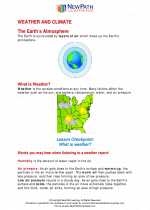
 Activity Lesson
Activity Lesson
 Worksheet/Answer key
Worksheet/Answer key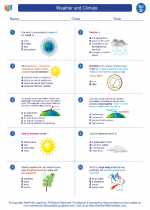
 Worksheet/Answer key
Worksheet/Answer key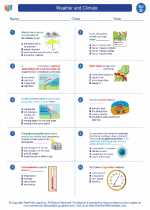
 Worksheet/Answer key
Worksheet/Answer key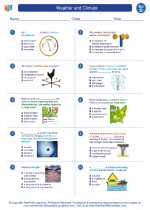
 Worksheet/Answer key
Worksheet/Answer key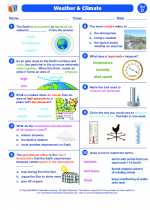
 Vocabulary/Answer key
Vocabulary/Answer key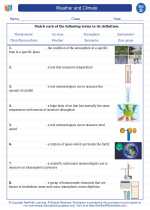
 Vocabulary/Answer key
Vocabulary/Answer key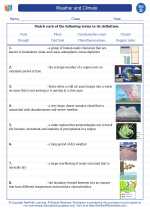
 Vocabulary/Answer key
Vocabulary/Answer key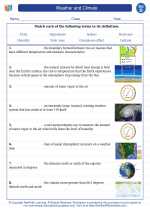
 Vocabulary/Answer key
Vocabulary/Answer key
